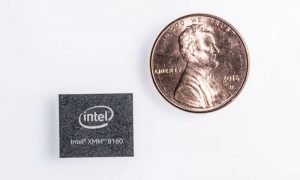Apple purchasing Intel smartphone modem division for $1 billion is indeed a remarkable achievement. Apple does involve itself in hi-fi technology.
Apple has taken a step forward to supply its smartphone chips by purchasing the majority of Intel’s modem business via a deal that costs $1 billion. Apple buys Intel’s smartphone modem division.
As per the deal, about 2,200 Intel employees will indeed join Apple, along with intellectual property, equipment as well as leases. Combined with its existing portfolio, Apple will be having nearly 17,000 wireless technology patents, which range from cellular communication standards to modems, thus making it a more powerful player in global licensing talks that are likely to take place between major 5G patent holders like Huawei Technologies Co Ltd.
Intel shares have gone up from 5.7% to $55.05 after the news. Apple shares made to a mark of 0.1% to $207.29. Keeping this in mind Apple buys Intel’s smartphone modem division.
Once the deal gets over, Intel will retain the right to develop modems for non-smartphone applications, such as PCs, industrial equipment as well as self-driving cars.
Modem chips do connect devices such as the iPhone to wireless data networks, but Apple has always indeed relied on outside suppliers for the part. Intel did position itself as the sole source of iPhone modem chips over the past year after Apple got entangled in a prolonged legal fight with previous supplier Qualcomm over Qualcomm patent licensing practices. Indeed Apple buys Intel’s smartphone modem division.
Apple’s acquisitions have mostly been much smaller companies.
The deal with Intel will rather enhance Apple’s goal to make its modem chip. Two of Apple’s biggest global rivals — Samsung as well as Huawei — do already have the ability to self-supply modem chips.
Apple has made efforts to develop its modem, but the iPhone maker has never formally acknowledged it.

Speeding up development
The purchasing of Intel’s assets can indeed rather help Apple meet its aggressive timeline for being able to produce a modem.
Apple also plans to make use of Qualcomm’s modem technology for a 5G iPhone in 2020 but does require an internally developed 5G modem technology ready for use in some of its products by 2021. Intel previously disclosed plans to have a 5G modem ready by 2020, so tapping the Intel assets could help Apple hit its target.
The replacement of Qualcomm is likely to take place in phases. Apple will try to build up its ability to ensure that its modems work on all the networks and countries where Apple does sell phones.
Apple’s license deal with Qualcomm does last for six years and its accompanying chip supply agreement could perhaps remain also for that long. Apple is indeed likely to continue to make use of the San Diego firm’s chips in its flagship models even if it phases in its silicon for lower-end as well as older models.
Apple has also a tie-up with Taiwan’s Global Unichip Corp, a chip design house in which Apple supplier Taiwan Semiconductor Manufacturing Co is an investor, to explore a modem design, but the work is in early stages
Patents as leverage
The most valuable feature of the Intel deal for Apple can turn out to be patented. To sell a 5G iPhone, Apple will indeed need to strike deals with the major holders of 5G patents, including Nokia, Ericsson, Huawei, and Qualcomm. Apple did execute a licensing deal with Qualcomm, but it has not disclosed whether it has several deals in place with the others.
Intel has a similar portfolio as Qualcomm, but they certainly have a much larger one to impact the valuations when it does come to a cross-licensing deal. It will help in preventing Apple from having to change much in cross-license deals.

